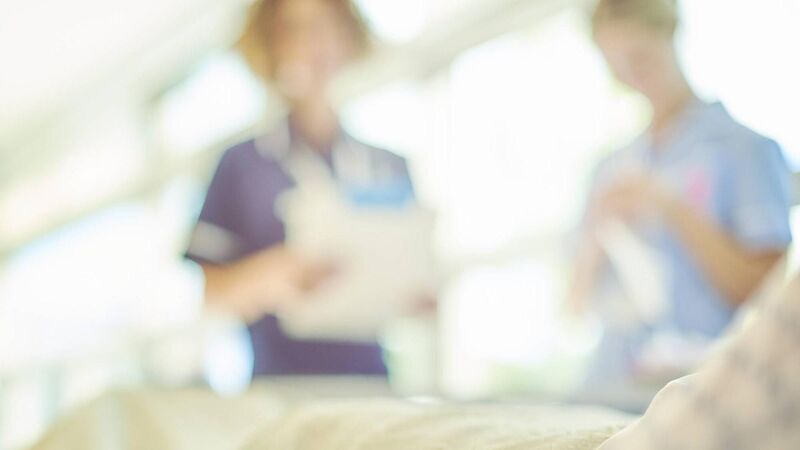Four-fold jump in youth eating disorder cases, accelerated by pandemic

The age of the young people suffering with eating disorders is going down.
There has been an almost four-fold jump in the number of young people presenting with eating disorders to community specialist services.
HSE medical experts said the need for services has “exploded” in recent years – and that this was “definitely accelerated” by the pandemic.
In addition to the increase in numbers, the age of young people suffering eating disorders is going down, the Oireachtas Mental Health Committee has heard.
The committee held a hearing in relation to the sudden announcement last May of the temporary closure of almost half of the 24 beds at the specialist Linn Dara In-Patient Unit in west Dublin.
The partial shutdown – at least until September – is the result of a staffing crisis at the centre with less than half of the allocated psychiatric nurses working there.
The unit is the busiest such facility within the Child and Adolescent Mental Health Service (Camhs) and treats young people with “severe and complex mental illness”.
Figures provided to the committee reveal:
- Referrals to the Community Specialist Eating Disorder Service rose from 47 in 2019 to 197 in 2021;
- Admissions to the Linn Dara In-Patient Unit increased from 138 in 2019 to 153 in 2021;
- 15% of admissions in the unit are aged 13 or younger, the majority being eating disorder patients;
- There are 51 psychiatric nursing posts at Linn Dara, but there are 27 vacancies;
- 11 of the 24 beds are closing temporarily, but none of the eight allocated eating disorder beds are closing.
“There has been a huge increase in the number of people presenting with eating disorders,” Professor Brendan Doody, clinical director of Camhs Linn Dara, told the committee, pointing out that the vast majority are seen in the community.
He told Fine Gael senator Martin Conway that the almost four-fold increase was mirrored by a five-fold rise in eating disorder cases at the Children’s Hospital in Tallaght over the last eight years.
He said that while there has been a trend upwards in recent years, that “definitely the pandemic accelerated this increase” in a range of disorders, including anxiety-type disorders and eating disorders – a trend, he said, seen internationally.
He added that while experts recognised there would be an increase they did not anticipate demand was “going to explode” like it did.
Sinn Féin mental health spokesman Mark Ward said that while there was supposed to be a total of 72 in-patient CAMHS bed – including Linn Dara and the three other units, in Galway, Cork and Dublin – only 53 were operating.

He questioned the ability of the system to take children needing intensive care and the danger they might be sent to adult services.
Prof Doody accepted that if “you take 11 beds out” there was going to be a risk. But he stressed that any child in crisis and diverted to an adult ward would be assessed straight away by his team and that he liaised with the other three CAMHS units.
Mary O’Kelly, chief officer of community healthcare Dublin/South Kildare and West Wicklow, said the staffing crisis was the result of a “perfect storm” of increased internal competition for psychiatric nurses, less agency staff, borders reopening and staff working abroad and numbers out sick.
In addition, she said nurses were “not able to afford” to rent or pay mortgages in Dublin and that some were travelling from the midlands and the west to Linn Dara.
She called on Oireachtas members to support their call for a “Dublin weighting” to be offered to attract the nurses to work in Dublin.
She said the HSE went to graduates and were in the process of interviewing 30 and were also conducting a separate recruitment drive to fill Linn Dara vacancies.
But she expected the graduate recruitment would take “three to four months” and agreed with Green Party Deputy Neasa Hourigan that they were “absolutely down to the wire” to get them in by September.
If you are affected by any of the issues raised in this article click here for a list of helplines and services.









